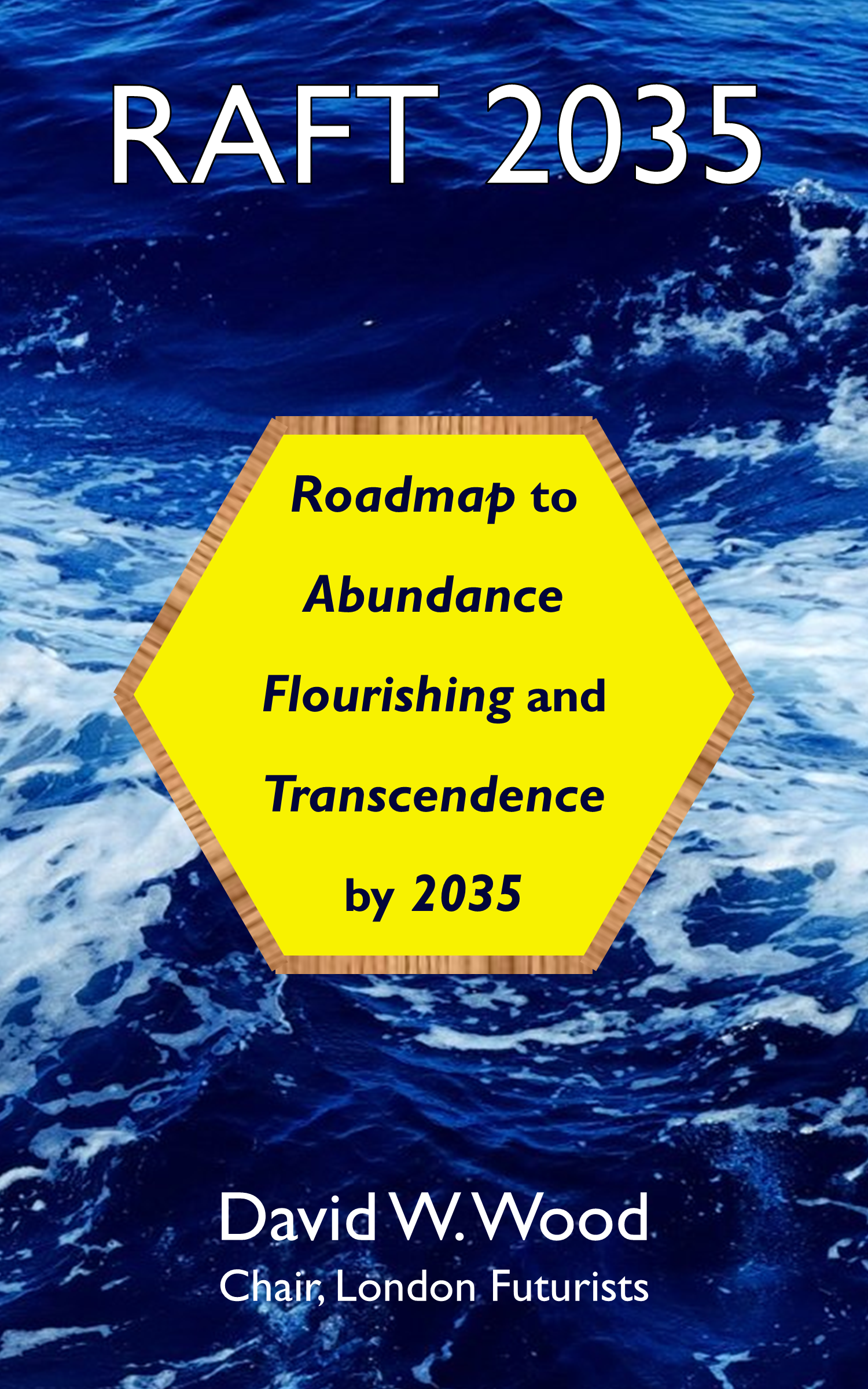Uplifting education
When first encountered, some aspects of the Singularity Principles may appear strange, excessive, or even other-worldly:
- The envisioned rapid increase in society’s pace of change
- The potential of new technology to inflict catastrophic damage worldwide
- The potential of new technology to enormously improve the human condition
- The urgency of transforming the systems under which new technology is developed and deployed
- The possibility for powerful technology companies to be constructively constrained by politicians and regulators
- The possibility for a system of regulations to be kept updated and relevant
- The possibility for regulators and politicians to meaningfully assist the task of steering the development and deployment of new technology, rather than being a hindrance
- The possibility for politicians in different countries to collaborate in support of the Singularity Principles, despite deep ideological differences between these politicians.
The preceding chapters of this book have provided a number of arguments in support of these possibilities. However, whilst these arguments make good sense from an intellectual point of view, they are likely to strike at least some reviewers as being counter-intuitive.
These feelings of puzzlement arise from lack of familiarity with key material that should be part of everyone’s education. Accordingly, full buy-in for the Singularity Principles will depend on public actions to remedy these shortcomings in the education syllabus.
That brings us to the Vital Syllabus project. This project aims to gather together excellent resources to boost educational possibilities worldwide. It explicitly addresses this question:
In our age of multiple pressures, dizzying opportunities, daunting risks, and accelerating disruption, what are the most important skills and principles to cherish and uphold?
The project highlights resources that can best assist students of all ages:
- To acquire and deepen these skills
- And to understand and embody the associated principles.
The criteria for resources to be included in the project are that these resources should be:
- Accessible: available without any payment or other obstacle
- Clear: easy to understand
- Engaging: inspiring and keeping the attention of viewers
- Focused: addressing the topic in the syllabus, rather than lots of other questions
- Authoritative: having good reason to be trusted.
Top level areas of the Vital Syllabus
The structure of the Vital Syllabus materials is subject to revision. At the present time, the materials are structured into twenty four top level areas, as follows:
(1) Learning how to learn: How to pick up new skills quickly and reliably
(2) Communications: Communications with a variety of different kinds of audiences
(3) Agility: How to manage uncertainty
(4) Creativity: Going beyond existing methods and solutions
(5) Augmentation: Technology and tools to boost abilities
(6) Collaboration: Becoming wiser and stronger together
(7) Emotional health: Nurturing emotional strength
(8) Physical health: Factors impacting physical health
(9) Foresight: Anticipating the unexpected
(10) Leading change: Inspiring and maintaining transformations
(11) Technologies: In history, the present, and the future
(12) Economics: In history, the present, and the future
(13) Governance: In history, the present, and the future
(14) Democracy: In history, the present, and the future
(15) Geopolitics: Influencing political processes, nationally and internationally
(16) Numeracy: Arithmetic and analysis for the modern age
(17) Science: Distinguishing “good science” from “bad science”
(18) Philosophy: Thinking about thinking
(19) Transhumanism: A philosophy particularly suited to the 2020s
(20) Culture: The basis for extended flourishing
(21) The environment: The context in which humanity exists
(22) Landmines: Identifying and addressing the biggest risks ahead
(23) The Singularity: Options for the advent of artificial superintelligence
(24) Ultimate futures: Beyond the event horizon
Improving the Vital Syllabus
The Vital Syllabus project welcomes assistance from anyone who shares the goals of the project. For more details, see the FAQ page for the project.
Note: The following video summarises the content in each of the top level areas of the Vital Syllabus. (Some of the content of various top level areas has evolved since the video was originally recorded.)

